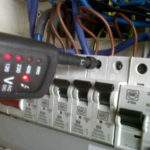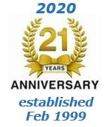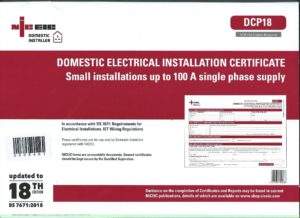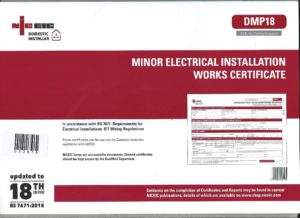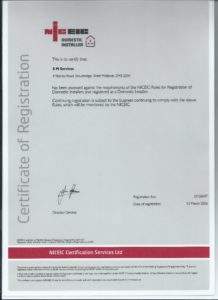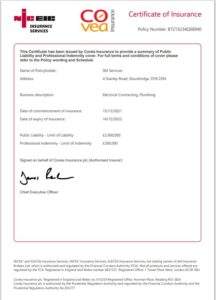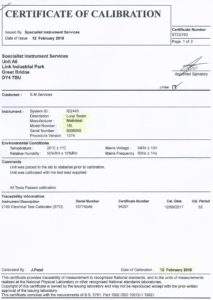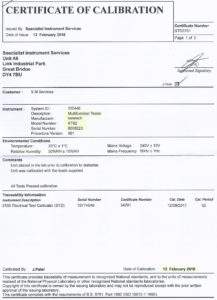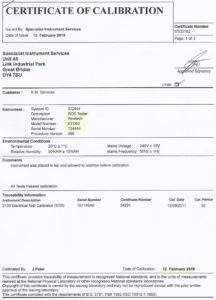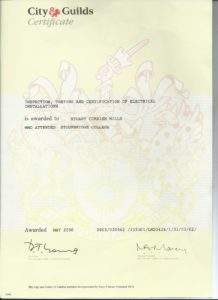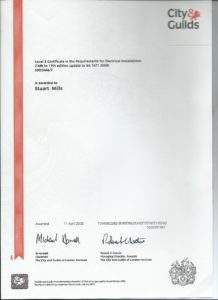- BS7671 wiring regulations are non statutory, but they are guidance for safe design, installation, commissioning, testing and ongoing maintenance of electrical installations.
- Building regulations are statutory and Part P relates to electrical work in dwellings.
DIY electrical work is legally permitted in the UK, but without appropriate test equipment or sufficient knowledge of BS7671 guidance, it can be difficult to confirm electrical safety. It is important to remember that ‘functionality does not prove safety’. A socket with no earth connected, polarity reversed, and inadequate cable size for the load or protective device, would appear to work, but in the event of a fault it could prove fatal. Electrical work is more than joining three wires into the correct terminals on the back of an accessory.
BS7671 specifies design characteristics to ensure that in the event of a fault a circuit will fail-safe before injury or damage to people property or livestock. The design and test results should be documented on an appropriate certificate to verify that additions or alterations meet the standards of BS7671. Because electricity can kill a healthy adult in less than half a second, qualifications and competence are vitally important for anyone undertaking electrical projects. Competent electricians will always test and certify their work in accordance with BS7671 wiring regulations.
SM Services issues appropriate electrical certificates for work undertaken.
(Electrical certificates are multiple A4 pages, Minor Works are a single A4 page.)
Some electrical work such as replacing fuse boxes or adding new circuits must also be certified as compliant with Part-P building regulations. Upon completion of any Part-P notifiable work, the customer should receive both an electrical test certificate and a building regulations compliance certificate.
There is no obligation for an electrician to be a member of any industry recognised trade body, (e.g. NICEIC, ELECSA, NAPIT, BSI, STROMA). Some builders, kitchen fitters, bathroom fitters, loft conversion companies, conservatory fitters etc.. have used this lack of legal obligation, to offer “a complete installation service”, including “doing the electrics”. Unfortunately they may not always used tradesmen with any formal electrical qualifications or test equipment and once the work is complete they issue no certificates or any Part-P notification (if applicable).
SM Services can verify membership of the NICEIC and that current valid public liability insurance is held,
(Original copies can be viewed upon request.)
A competent electrician will have sufficient qualifications and experience for the type of work they are undertaking. They will have correct test equipment and issue certificates with a signed declaration, confirming that work complies with the current edition of BS7671. They will be able to certify all aspects of Part-P compliance. They will carry sufficient insurance to cover their work in the event of an unforeseen mishap. Many will be members of one of the electrical trade contractor associations and they will be inspected annual to verify correct methods and procedures are adopted to ensure adherence to current regulations.
SM Services uses internal verification and external independent calibration at suitable intervals to ensure the accuracy of test equipment. Meter serial numbers and calibration certificates can be audited. ‘6008223’, ‘124444’ & ‘8006958’ were all last checked February 2018.
(Original copies can be viewed upon request.)
Whoever you choose to undertake any electrical alterations, it is wise to have a formal written quote, or contract, stating what work is being done and ensuring you get the appropriate electrical certificate(s) and any building regulations notification if applicable upon completion. These documents will provide a paper trail of liability in the event of any workmanship or non compliance issues with BS7671 or Part-P. Additionally by employing an electrician who is a member of one of the trades bodies, you will generally have access to their customer complaints procedures in the event that you need to pursue a problem where a contractor is uncooperative.
For the safety of yourself and your loved ones, do not undertake any DIY electrical work unless you are familiar with correct design and testing procedures recommended by BS7671 and have access to appropriate test equipment. If you have any doubts about an electrical project ensure you employ a competent electrician who can meet all legal and safety requirements on your behalf. Remember that a large proportion of house fires are believed to be caused by electrical faults.
SM Services can verify formal City & Guilds qualifications with certificates for various courses relating to the design, installation and testing of electrical installations. Two such examples include “Inspection & testing” certificate and 17th edition wiring regulations certificate.
(A full set of other certificates and original copies can be viewed upon request.)
- Stuart Mills, has been trading as “SM Services” since Februay 1999.
- Carries £2,000,000 (two million) pounds sterling public liability insurance. Has been a registered member of the NICEIC since March 2006, (reg No D106697).
- Is capable of undertaking all aspects of domestic electrical work from a simple additional socket to a full rewire.
- SM Services will notify any Part-P building regulations compliance and issue appropriate BS7671 certificates for work undertaken.
-{page end 13Dec21}-
